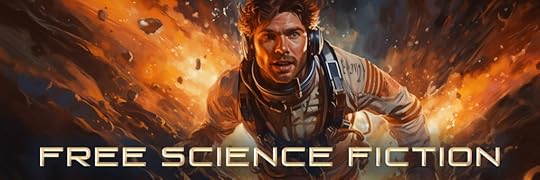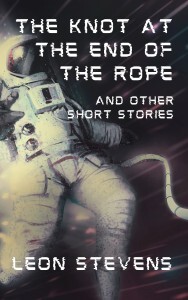Free Book Friday March 9th: AI. AI? Oh…
When did computers become intelligent? Trick question. Computers are not intelligent. They are just very good (and quick) at following directions. Whose directions? Not a trick question. The programmers.
We all know the saying “Garbage in, garbage out,” right? But did you know the origins of it? Well, you are about to find out, my friend.
At the dawn of civilization, between the rivers of the Tigris and Euphrates, people began to complain to their local government that refuse was piling up in the narrow streets. The government’s solution? Widen the streets.
With the flip of a clay tablet (blank on one side, cuneiform on the other), cuneiform won out and the left side of every street was razed to make room for more rubbish, which ironically was the remnants of the buildings that were just knocked down.
The citizens were outraged and demanded the government do something, and before one of the councilors suggested they widen the streets the other way, a humble traveler said, “I’m just a humble traveler, but wouldn’t it be better if we take all the debris and put it somewhere else, so it is someone else’s problem?”
Another person, Mrs. Adage spoke up. “Yeah, it’s like if we can see it, we will forget about it.”
Everyone stopped and wondered if there was a better way of phrasing this, but decided it was the best wording and would be repeated for all eternity. Plus, they figured that in a few thousand years, archeologists would need something to dig up. Anyway, nobody wanted to be a hauler of trash, so it was sub-contracted to an outfit four rivers over.
The job was explained as, “You take all the refuse from the streets, load it into the cart, take it to the municipal field behind the hill just past Mr. Johnson’s clay house, and empty it there.”
“So,” the new laborers said, “Garbage in, garbage out?”
True story.
Back to intelligence. Merriam-Webster defines intelligence as:
“the ability to learn or understand or to deal with new or trying situations“
Do computers learn or do they just follow the algorithms set in their programing? Do they “understand”? I don’t think they do, because if they did, they wouldn’t keep correcting my split infinitives (which they should know by now, I love) and they could figure out that I’m trying to spell the word “yacht”.
Do they deal with new situations? AI programs must have a ton of rules to go through in order to “deal withnew or trying situations”, so do they deal or just follow the rules set out for them?
There is a secondary definition:
“the ability to apply knowledge to manipulate one’s environment or to think abstractly as measured by objective criteria“
Environment. I suppose there is a digital environment because we’ve all seen Ready Player One and The Matrix. Computers are allowed to make changes if my constant Windows updates are any indication.
Think abstractly. That’s the kicker. AI copies its creative output. That’s it. Sure, there are given objective criteria, but it boils down to mimicking what’s already out there. But you’re thinking people just copy what’s already created, right? I’m looking at you Lee Child and the same Jack Reacher book with different titles.
I think Artificial Intelligence should be referred to as Quick Algorithmic Calculation Computational Assessor, or… (say it with me)
QACCA
Apt? I think so…
Read my latest newsletter:
Lines by Leon Magnificent Bi-Weekly Newsletter ExtravaganzaCan it be that good? Only one way to find out.
The story behind Free Book Friday:I’ve met many authors and readers during my time marketing, cross-promoting, and blogging. I think writers have a responsibility to inform readers about all the indie authors out there in the very crowded world of book publishing. You can’t do it alone, and why would you when you have a supportive group available?
Readers don’t just read one author – they stick with their favorite genres. Therein lies the power in cross-promotion. If one of my readers buys a book from an author I promote, then chances are there will be a reciprocal effect, or so is the hope. Do I want to boost sales? Of course I do. Do I want to boost other’s sales? Why not. It’s called karma.
Some free book offers require a newsletter sign-up, which is a small non-monetary price to pay to try out a new indie author.
Reads From StoryOrigin and BookFunnelStoryOrigin and BookFunnel allows authors to advertise their books to each other’s audience. I hope you have been able to discover a new favorite!
Last Chance! Ending soon!
Ending soon!
 Free Books!
Free Books!

 Sales/Purchase Links
Sales/Purchase Links

Current promos: Discover New Authors
Review Copies (These are free!)Review copies: Like reviewing books? Try my two poetry collections: Lines by Leon and A Wonder of Words
Sign up for my bi-weekly newsletter and receive a free book (poetry or science fiction or both): Leon’s Newsletter


Leon Stevens is a multi-genre author, composer, guitarist, songwriter, and an artist, with a Bachelor of Music and Education. He published his first book of poetry, Lines by Leon: Poems, Prose, and Pictures in January 2020, followed by a book of original classical guitar compositions, Journeys, and a short story collection of science fiction/post-apocalyptic tales called The Knot at the End of the Rope and Other Short Stories. His newest publications are the novella trilogy, The View from Here, which is a continuation of one of his short stories, and a new collection of poetry titled, A Wonder of Words.
My new book page: http://books.linesbyleon.com/

Sign up for my bi-weekly newsletter and receive a free book!
 Oh, pick me!
Oh, pick me!
 C’mon, space stuff!
C’mon, space stuff!



